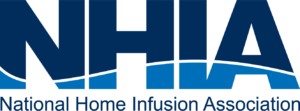NHIA 2024 Draws Record Attendance, Recognizes Excellence Across Home Infusion
Last week concluded the 2024 National Home Infusion Association Annual Conference (NHIA 2024), which brings together more than 1,600 home and alternate site infusion professionals for four days of networking, education, and exhibits.
